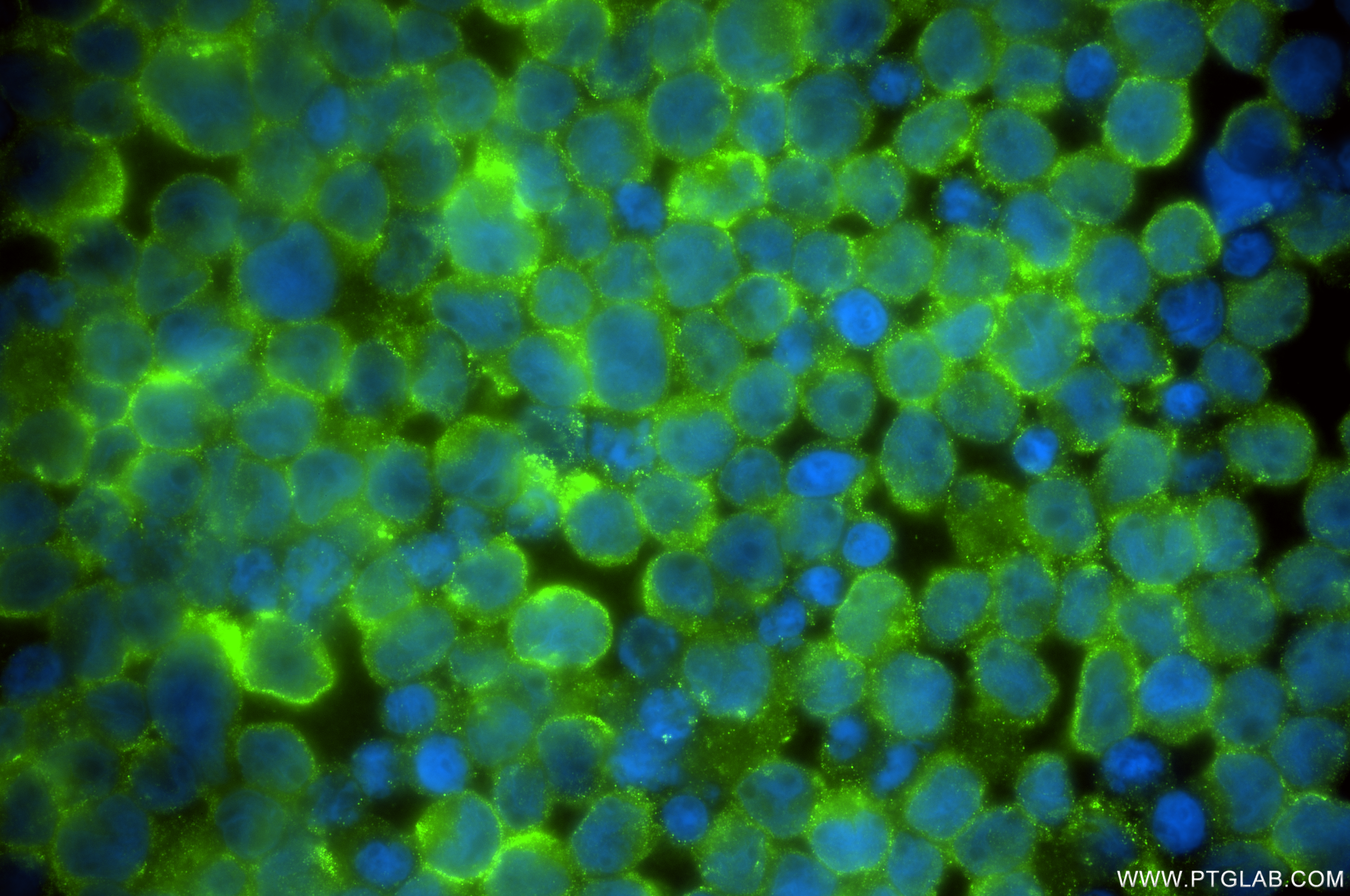Tested Applications
| Positive IF/ICC detected in | NK-92 cells |
Recommended dilution
| Application | Dilution |
|---|---|
| Immunofluorescence (IF)/ICC | IF/ICC : 1:200-1:800 |
| It is recommended that this reagent should be titrated in each testing system to obtain optimal results. | |
| Sample-dependent, Check data in validation data gallery. | |
Product Information
85021-4-RR targets NKp46/NCR1 in IF/ICC, ELISA applications and shows reactivity with human samples.
| Tested Reactivity | human |
| Host / Isotype | Rabbit / IgG |
| Class | Recombinant |
| Type | Antibody |
| Immunogen | Recombinant protein Predict reactive species |
| Full Name | natural cytotoxicity triggering receptor 1 |
| Calculated Molecular Weight | 34kDa |
| Gene Symbol | NCR1 |
| Gene ID (NCBI) | 9437 |
| Conjugate | Unconjugated |
| Form | Liquid |
| Purification Method | Protein A purification |
| UNIPROT ID | O76036-1 |
| Storage Buffer | PBS with 0.02% sodium azide and 50% glycerol , pH 7.3 |
| Storage Conditions | Store at -20°C. Stable for one year after shipment. Aliquoting is unnecessary for -20oC storage. 20ul sizes contain 0.1% BSA. |
Background Information
NKp46, also known as natural cytotoxicity triggering receptor 1 (NCR1), is a type I transmembrane protein belonging to the immunoglobulin superfamily. NKp46 is a key activating receptor expressed on natural killer (NK) cells. It plays a key role in the innate immune response by recognizing and binding to viral hemagglutinins and other ligands on infected or tumor cells. NKp46 mediates cytotoxicity and cytokine production upon engagement with its ligands, contributing to the elimination of infected or malignant cells. Its expression and function are tightly regulated, and dysregulation of NKp46 has been implicated in various diseases, including viral infections, cancer, and autoimmune disorders. (PMID: 11234016; 29329948; 9730896; 9314561).
Protocols
| Product Specific Protocols | |
|---|---|
| IF protocol for NKp46/NCR1 antibody 85021-4-RR | Download protocol |
| Standard Protocols | |
|---|---|
| Click here to view our Standard Protocols |



